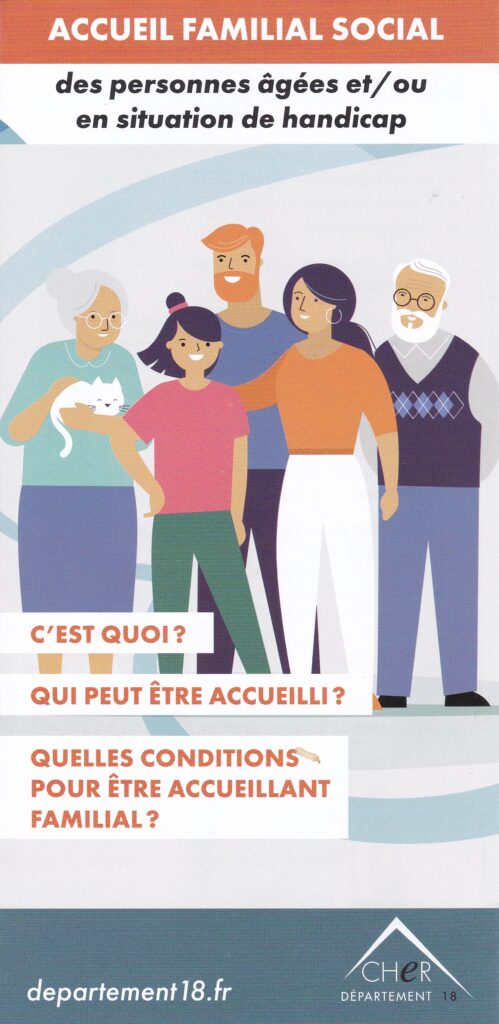L’family welcome constitutes an essential solution for elderly people and those in disability situation. This approach allows these individuals to be accommodated in the home of a welcoming family, thus offering an intimate and personalized living environment. Situated between home care and collective accommodation in an establishment, family care presents itself as a safe alternative. Hosts take into account the specific needs and aspirations of the people they receive, thus promoting their daily well-being.
L’family welcome represents a valuable option for seniors and adults in disability situation. It allows these people to benefit from accommodation in a family setting, thus promoting a reassuring and caring environment. Unlike a collective care establishment, family care offers a more personalized alternative, where the individual needs of each person welcomed are taken into account.
Family carers welcome elderly people or disabled adults into their homes, under conditions regulated by the Social Action Code. This type of reception is particularly suitable for those looking for an intermediate solution, halfway between home support and institutional accommodation. Thus, it contributes to ensuring a security and comfort for those who can no longer live alone at home.
One of the main objectives of foster care is to ensure personalized support. The family caregiver takes into account the expectations, wishes and interests of each person, ensuring that they provide a suitable living environment. This daily support promotes the development of residents, while respecting their pace of life.
To become a family host, a few criteria must be met. It is essential to have an appropriate and safe living space, as well as the willingness to invest time and energy in supporting its residents. Remuneration for this service is regulated, and the host receives financial compensation for their commitment. This activity is regulated in order to guarantee the safety and well-being of those welcomed.
In terms of salary, the income received by a family host can vary depending on the number of residents welcomed and the specificities of their needs. Indeed, some residents may require more attention depending on their degree of dependence. Remuneration is therefore adjusted according to these criteria.
The advantages of foster care are multiple. First, it promotes remaining in a family environment, which can be less destabilizing for those welcomed. As a result of this dynamic, social interactions tend to become stronger, thus helping to break the isolation often felt by elderly or disabled people. In addition, the family host has the opportunity to build authentic bonds with its residents, helping to create a warm atmosphere.
However, family care also presents disadvantages. The emotional and physical burden on the host can be significant, particularly in the case of residents requiring constant attention. In addition, managing family relationships can sometimes be tricky, particularly if differences in priorities appear between the members of the host’s family and the needs of the resident.
In conclusion, foster care represents a solution worth exploring for the elderly and disabled adults. Thanks to personalized support, it promotes social integration and well-being, while at the same time offering a form of support adapted to the specific needs of each person.
L’family welcome constitutes an essential alternative for the elderly and adults in situations of disability who are looking for a living environment adapted to their specific needs. This type of accommodation allows these individuals to live in a warm, family environment, while benefiting from individualized care. Indeed, the role of a family caregiver is to assess the needs, wishes and aspirations of the person being welcomed, thus ensuring personalized support and optimal quality of life.
The operation of thefamily welcome is based on a relationship of trust between the host and the host. Both parties must agree on living conditions and mutual expectations. Furthermore, family reception draws its foundations from regulatory standards, guaranteeing the safety and well-being of the people in care. They can benefit not only from a structure that promotes their autonomy, but also from an enriching social life, which takes them away from the solitude often felt in collective establishments.
Becoming a family host is therefore a serious process, governed by specific laws. This ensures that each host is able to meet the requirements related to welcoming people in vulnerable situations. Remuneration, although regulated, varies according to the needs of those hosted and the infrastructure put in place by the host. Thus, family care represents a viable and secure solution, both for the elderly and for those with disabilities seeking a warm living environment that respects their needs.







